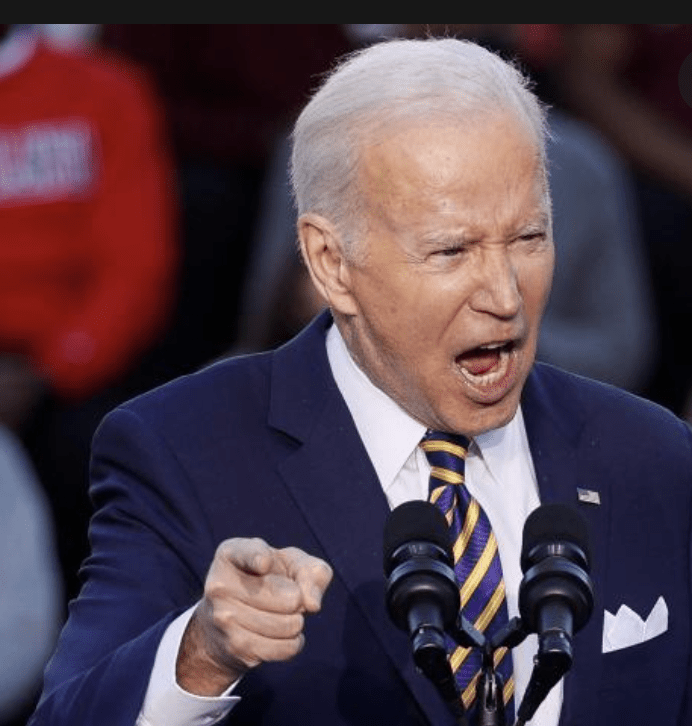U.S. Politics
The Truth Report: The States’ Fight to Block Donald Trump’s New Immigration Order

Welcome to The Truth Report, I’m Barry Nussbaum.
This week President Donald Trump released his new and revised immigration travel ban issued again as an executive order. When viewers had written in to ask “how is this travel restriction different than the last one that was blocked by the courts?” we responded with a segment on Because You Asked. In that show, we analyzed the differences between the first order that was blocked on February 9 when the U.S. court of appeals for the ninth circuit affirmed a lower court’s temporary restraining order, and the new order that was issued on March 7, 2017.
Today, we are going to discuss the second order and the various states’ responses to it. The intent of both the first and second travel orders, Trump administration officials say, is to screen out visitors from countries affected by terrorism until more stringent vetting measures can be put into place.
The new order has been stripped of many provisions that federal judges across the country found troublesome in the first one. However, the new executive order has already been aggressively challenged in the courts by a number of states. To begin, let’s review the precedence for the President of the United States having the authority to issue such an executive order. Instead of giving a 100+ year history lesson today let’s just review the actions of the most recent Presidents. Keep in mind these previous six Presidents are both republicans and democrats, conservative and liberal in their political philosophy and the party they represented, and yet every single President proceeding President Trump going all the way back to Jimmy Carter has signed similar executive orders.
All of them have signed similar executive orders based on authority granted under the Constitution. Section 212(f) of the immigration and nationality act of 1952 states: “whenever the President finds that the entry of any aliens or of any class of aliens into the United States would be detrimental to the interests of the United States, he may by proclamation, and for such period as he shall deem necessary, suspend the entry of all aliens or any class of aliens as immigrants or nonimmigrants, or impose on the entry of aliens any restrictions he may deem to be appropriate.”
President Barack Obama used the authority this statute provides six times in his tenure. In July 2011, Obama barred the entry of “anyone under a U.N. travel ban; anyone who violates any of 29 executive orders regarding transactions with terrorists, those who undermine the democratic process in specific countries, or transnational criminal organizations.” In April of 2012, he barred the entry of anyone “facilitating computer or network disruption that could assist in or enable serious human rights abuses by or on behalf of the government of Iran and Syria; anyone who has sold or provided goods, services, or technology to Iran or Syria likely to be used for such purposes; or to have materially assisted anyone whose property or interests are described.”
Former President George W. Bush used this authority six times as well during his tenure, typically on government officials. In January 2004, he signed an order “barring entry for public officials who solicit or accept bribes in exchange for any act or omission in their public duties that has serious adverse effects on the national interests of the U.S.; anyone who provides or offers to provide such a bribe; any current or former public official whose misappropriation of public funds or interference with public processes has had serious adverse effects on the national interests of the U.S., or the immediate families.” The groups Bush barred for entry included members of the Mugabe government in Zimbabwe and the Lukashenka government in Belarus.
The authority of the President to bar certain classes of aliens was used six times by former President Bill Clinton. For example, in May of 1994 Clinton signed an order “barring entry for members of the Haitian military, their immediate families, any major participants in the coup d’état of 1991.” Then in January of 1998, Clinton signed an order “barring entry for members of the military junta in Sierra Leone, and their families.”
Former President George H. W. Bush only used this executive authority once in his four years of office. When he did use it, it was actually to undo a previous executive order by President Ronald Reagan that suspended entry of officers and employees of the Nicaraguan government.
Former President Ronald Reagan used this executive authority five times while in office. In September of 1981, he barred the entry of “any undocumented aliens arriving at the borders of the United States from the high seas.” In August of 1986, Reagan signed an order “barring entry for any Cuban nationals or immigrants except in certain cases.” These “certain cases” included Cuban nationals who had applied for entry into the U.S. as immediate family members and those who under law were “special immigrants.”
Former President Jimmy Carter used this executive power only once and in a way, quite similar to what Trump has proposed. In April 1980, as the U.S. embassy in Tehran was under terrorist control, Carter signed an order invalidating “all visas issued to Iranian citizens for future entry into the United States.” The order said that the U.S. “will not reissue visas, nor will we issue new visas, except for compelling and proven humanitarian reasons or where the national interest of our own country requires.”
In spite of the facts as we have just reviewed, the state attorney generals of a number of states have already filed suit to block the new executive order. Washington state attorney general Bob Ferguson said Thursday that the state would take President Trump to court to block enforcement of his new, revamped travel order pausing refugee resettlement and travel from six majority-Muslim countries.
Washington state’s lawsuit against the first travel ban led a Seattle federal court judge to order a national halt to the executive order, which had caused chaos at airports around the country and led to the cancelation of 60,000 travel visas.
Ferguson said the state’s challenges to the new travel ban remain largely the same as the first one, which it said was discriminatory against Muslims and caused unnecessary harm to the state’s residents, universities and businesses. It is interesting that the harm to Washington state resident’s universities and businesses as neither documented nor quantified in any manner and yet in spite of that, a very liberal Seattle federal judge ordered a halt to enforcement of the first executive order and made his effective nationwide. Washington is joined by Minnesota in its lawsuit. The attorneys general of New York, Oregon and Massachusetts also said they would join the suit.
According to Minnesota attorney general Lori Swanson, “it does not pass constitutional muster, is inconsistent with our history as a nation, and undermines our national security. America can keep its people safe without sacrificing bedrock constitutional principles.” Wow, three dramatically wrong statements in a row, Ms. Swanson!
Hawaii’s complaint says it objects to the new travel order because it has “profound” and “detrimental” effects on the state’s economy and people. The state also argues that the executive order discriminates against Muslims and violates the equal protection and due process guarantees of the constitution. However, Hawaii’s complaint fails to qualify the damages to the state’s economy and its people. A hearing is set for 9:30 a.m. March 15 in Honolulu on Hawaii’s request for a national temporary restraining order on the new travel order, which is scheduled to take effect March 16.
Legal experts have said the new travel ban, which applies to citizens of Iran, Sudan, Somalia, Libya, Syria and Yemen (it does not include Iraq as the previous order did), will be tougher to fight in court because of the President’s broad authority over immigration enforcement and national security when it comes to noncitizens and those without visas.
These suits names as defendants president Donald Trump, homeland security secretary John Kelly, acting secretary of state Tom Shannon and the federal government. None of the state filings address the most critical aspect of President Trump’s motivation which is to keep America safe from the possible harm caused by unvetted refugees flooding into the United States. Instead opposition to anything and everything proposed by President Trump seems to be the agenda of not only several states attorney generals but also the activist judges where their cases for injunctions were shopped and filed.
It remains to be seen how the courts will rule and whether or not the new executive order will still be viable and in place when it is set to take affect March 16.
Stay in touch, we will be following up on this story. You can handle the truth, we intend to bring it to you! I’m Barry Nussbaum.










